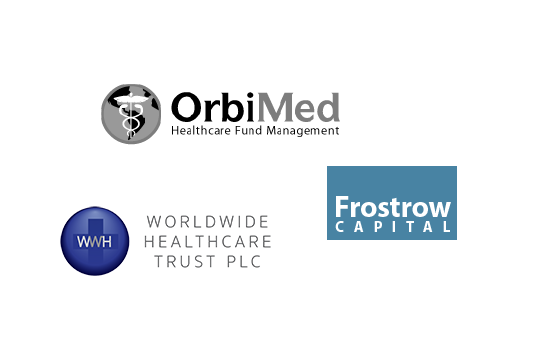Worldwide Health offers a way to play AACR lung data reveal
London-listed Worldwide Healthcare Trust (WWH) could be best way for trust investors to obtain exposure to what is likely to be the most important clinical data disclosure involving large cap pharmaceutical companies this year. This is set to occur next Monday (16 April) at the American Association for Cancer Research (AACR) annual conference and will be the detailed results for three phase III studies of competing anti-PD(L)-1 checkpoint inhibitors – Merck & Co’s Keytruda, Bristol-Myers Squibb’s Opdivo and Roche’s Tecentriq – in various combinations in the first-line treatment of non-small cell lung cancer (NSCLC).
Of the 13 healthcare specialist closed end funds monitored by Marten & Co, only OrbiMed-managed Worldwide Healthcare offers substantial exposure one or more of the three companies involved. Merck is this trust’s largest single holding, representing 4% of NAV, although interestingly it has a hedge with Bristol-Meyers Squibb ranking fifth, at 3.2% of NAV, as of the end of February. Furthermore, both holdings were acquired largely or entirely earlier this year and thus will almost certainly have been done so on the basis of a detailed analysis of possible outcomes of these three studies and their effect on the NSCLC market. It is also worth noting that OrbiMed is considered the most sophisticated and well resourced of the US healthcare specialist investors.
The NSCLC indication and its first line (or “1L”) treatment setting (initial treatment given after diagnosis) that was addressed in all three studies is considered to be the most important prize in oncology. Given the large number of individuals who are affected by the cancer, it is the most valuable commercially and is probably worth as much as the next three most prevalent cancer types combined.
Another unusual aspect about this particular conference reveal is the fact that all three studies – known as Keynote-189, Checkmate-227 and Impower-150 – are already known to be positive in terms of their primary statistical analysis, which has been disclosed in press releases over the past few months. But all of the numerical data have been held back for presentation at the AACR conference and analysts are therefore gearing up for a marathon session afterwards comparing and contrasting the subtle differences in the results to refine their market projections. The withholding of detailed results for conference presentation is a normal practice but the fact it should affect three pivotal studies in the same indication at the same time makes this a highly unusual event.
Although expectations have already been priced in, some analysts have attempted to guess the magnitude of share prices movements that could occur next Monday in the event of an unexpected positive or negative outcome relative to the others. CreditSuisse, for example, believes Merck could see a share price movement of anywhere between +5% and -3% , while Bristol-Myers could see a rise of up to 6-8%. Such large movements for pharmaceutical companies are highly usual, given the market cap for Merck is $150bn and $100bn for Bristol-Meyers Squibb (Roche’s is even larger at $200bn). It is, however, also a zero sum game – one company’s share price gain is likely to result in the other’s loss.
Merck already has the strongest commercial position in NSCLC so arguably has the most to lose. Keytruda is currently the only anti-PD(L)-1 to have obtained an monotherapy approval in 1L NSCLC in patients whose tumours have high expression levels of PD-L1 (>50%), perhaps representing just 25% of patients. And separately it reported a positive outcome in another Phase III study – Keynote-042 – earlier this week, that could in theory expand this to the roughly 70% of patients who have tumours that express PD-L1 above 1%, a lower much cut-off. However, this change will probably be moot as the field is already moving towards combinations with chemotherapy or combinations of immuno-oncology drugs.
Merck has in fact already secured approval for Keytruda, at least in the US, for use in combination with one particular chemotherapy, under an accelerated procedure, and the Keynote-189 data should both confirm and widen this approval. But here it faces potential competition from Bristol-Myers with the so-called IO-IO combination of Opdivo/Yervoy and Roche, which tested Tecentriq in combination with Avastin and doublet chemotherapy in its study. Further complication matters is that fact that Keynote-189 and Impower-150 only tested non-squamous patients, whereas Bristol-Myers’s Checkmate-227 also included patients with squamous histology.
Outcomes of IO studies have become the most important driver of share price changes for biotech and pharmaceutical companies. Only last week, a closely watched phase III trial of Incyte’s IDO inhibitor epacadostat failed to show any improvement on top of Keytruda in metastatic melanoma, effectively rendering what was a year ago considered to be the most promising and valuable second generation IO drug to virtual worthlessness. Furthermore, no fewer than eight phase III trials are already underway with epacadostat paired with either Keytruda or Opdivo, and these have been plunged into limbo and may even have to be abandoned.
The detailed results of the NSCLC studies are likely to emerge in the form of a press releases at around 7.00am EDST (12.00pm BST) on Monday, with further comment arising after presentations at a morning press conference. The AACR presentations themselves take place from 10.35am CDST (4.35pm BST), and will provide additional commentary. The companies are also likely to hold analysts calls to further refine the analysis.
WWH – Worldwide Health offers a way to play AACR lung data reveal
